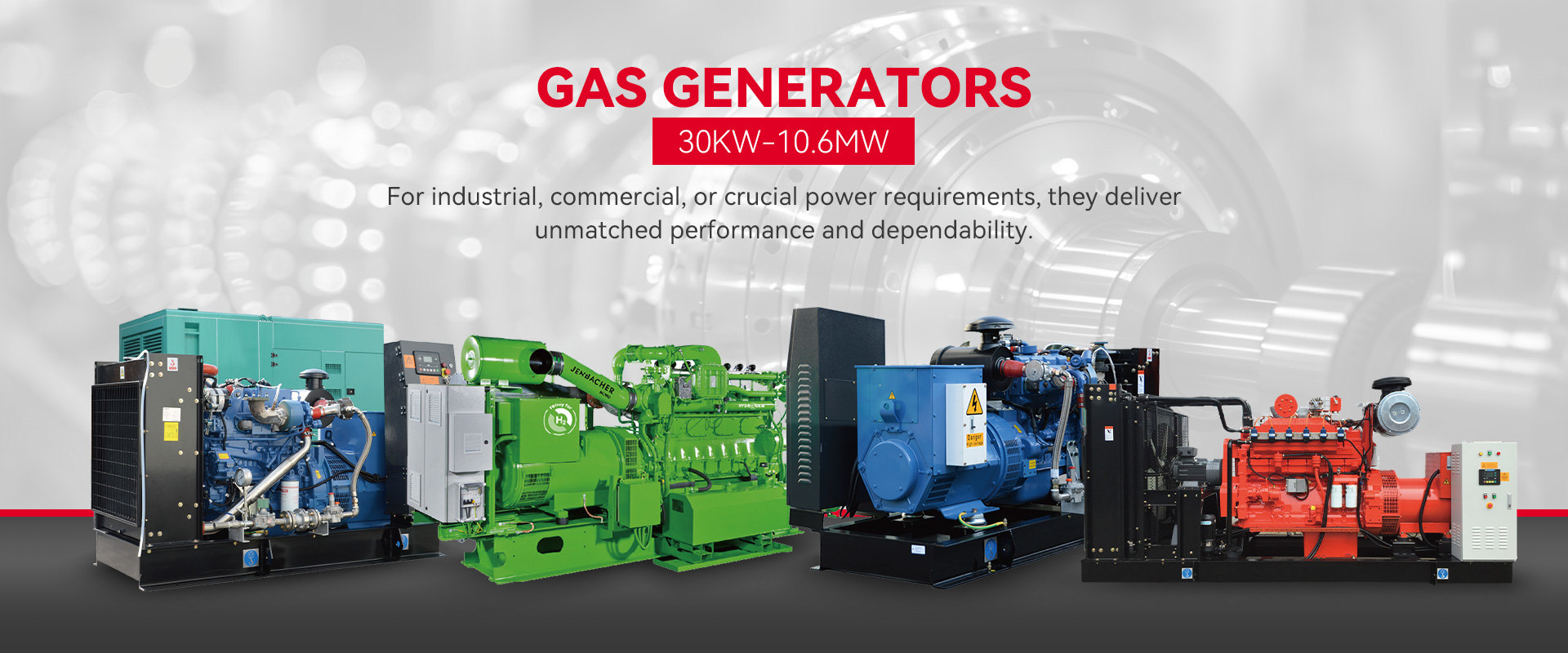In the realm of backup power generation, two prominent options be noticeable: gas main and diesel generators. In the event the power quickly scans the blogosphere, and also the requirement for it will become critical, deciding on the best generator set will make a huge difference. But how do you decide between gas main and diesel generators? Each one has its own pair of pros and cons, and the choice ultimately is dependent upon your specific needs and circumstances.

In this article, we’ll look into the distinctive features, advantages, and drawbacks of natural gas and diesel generator sets, enabling you to make a well-informed decision which option aligns best with your needs.
Gas Generators
Advantages
Cleaner Emissions: One of the primary advantages of gas main generators could be the lower environmental impact. When gas burns, it produces fewer harmful emissions, like particulate matter, nitrogen oxides, and sulphur dioxide, when compared to a diesel genset. As a result gas main generators an eco-friendly choice for those concerned about quality of air and environmental sustainability.
Cost-Effective Fuel: Gas main is frequently less costly than diesel fuel. The cost savings may be significant over time, particularly if you intend to make use of generator frequently. Furthermore, the supply of gas is commonly more stable, reducing price fluctuations.
Less Maintenance: Gas main generators typically require less maintenance than their diesel counterparts. This comes from the cleaner-burning nature of propane, which results in fewer deposits and soot buildup from the engine, extending the generator’s lifespan.
Quieter Operation: Gas generators are known for their quieter operation. This can be a vital consideration in areas and settings where environmental noise should be minimized.
Disadvantages
Limited Fuel Storage: A disadvantage to gas main generators is the addiction to a nonstop supply of gas. This is often problematic during extended power outages or even in remote locations where a regular gas supply is probably not available.
Lower Energy Density: Propane includes a lower energy density in comparison to diesel, meaning you might demand a larger storage capacity or maybe more frequent refuelling for the similar power output.
Lower Fuel Efficiency: Propane generators tend to be less fuel-efficient than diesel generators, that may increase operational costs in the long run.
Lower Portability: Due to the need for a passionate natural gas supply, these generators are less portable and versatile than diesel generators.
Diesel Generators
Advantages
High Energy Density: Diesel fuel enjoys its high energy density. This implies diesel generators offers more power inside a smaller package, causing them to be ideal for applications where space is bound.
Fuel Storage: Diesel generators possess the benefit of having the capacity to store fuel longer periods without degradation. As a result them a dependable option for backup power in remote locations and in long-term power outages.
Fuel Efficiency: Diesel generators have fuel efficiency, consuming less fuel for similar output as gas main generators. This brings about lower operational costs.
Greater Reliability: Diesel engines are generally better quality and durable, be responsible for greater reliability in demanding conditions. They are usually the go-to decision for mission-critical applications.
Disadvantages
Emissions and Environmental Impact: Diesel generators emit higher degrees of pollutants, including nitrogen oxides and particulate matter, which could have uncomfortable side effects on quality of air and public health. Stricter emissions regulations happen to be carried out mitigate these issues.
Noise Levels: Diesel generators are often noisier than propane generators, which is often an issue in residential areas or where noise pollution is a consideration.
Fuel Availability and expense: Diesel fuel can be higher priced and subject to price fluctuations. Additionally, storing large volumes of diesel fuel can cause safety and environmental risks.
Maintenance Requirements: Diesel generators typically require more frequent maintenance on account of soot and carbon buildup within the engine, which may improve the price tag of ownership.
When you ought to Choose Gas Generators?
Environmental Concerns: Should you prioritize environmental sustainability and cleaner emissions, an organic gas generator will be the strategy to use.
Personal savings: If you’re trying to reduce fuel costs in the lon run and have usage of a dependable gas main supply, natural gas generators might be more cost-effective.
Quiet Operation: In areas or places where noise levels has to be kept down, propane generators would be the quieter choice.
Less Frequent Use: If your generator works as a backup for infrequent power outages, the lower maintenance requirements of propane generators cause them to become a convenient option.
When you ought to Choose Diesel Generators?
High Power Requirements: Should you prefer a high-power output inside a compact package, diesel generators, making use of their high energy density, would be the better choice.
Reliability: For mission-critical applications where reliability is key, for example data centres or healthcare facilities, diesel generators in many cases are preferred this can robust and durable engines.
Remote Locations: In areas with limited use of an organic gas supply or during long-term power outages, diesel generators using their reliable fuel storage would be the better choice.
Frequent Use: Should your generator will see frequent use and also you prioritize fuel efficiency, diesel generators may be less expensive over time.
Conclusion
The selection between gas main and diesel generators depends on your unique requirements, budget, and environmental concerns. Both forms of generators have their own benefits and drawbacks, and also the secret’s to carefully evaluate your requirements priorities before you purchase. Additionally, make sure to understand local regulations and emissions standards that could affect your selection.
To learn more about used generator set check our resource

